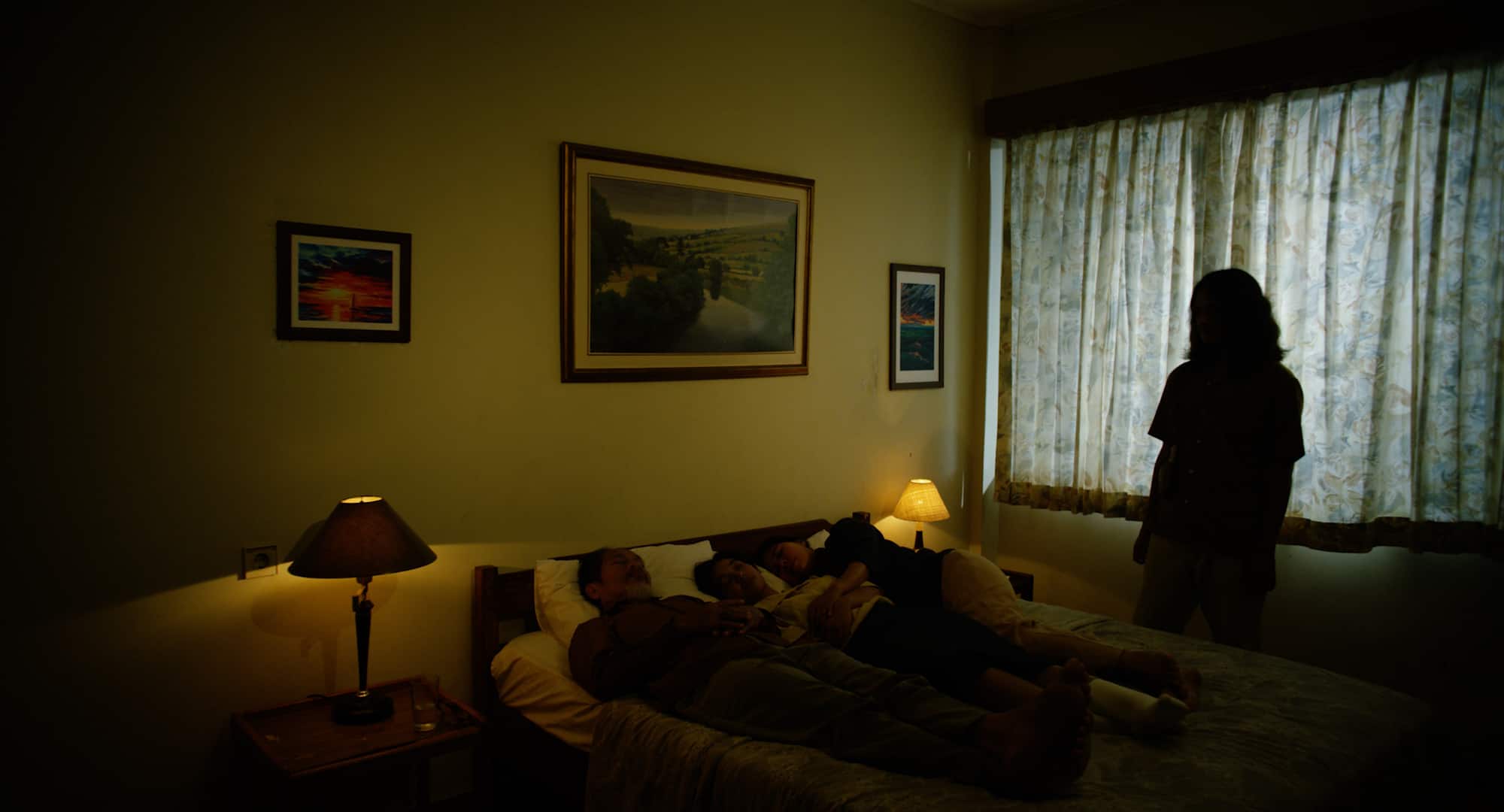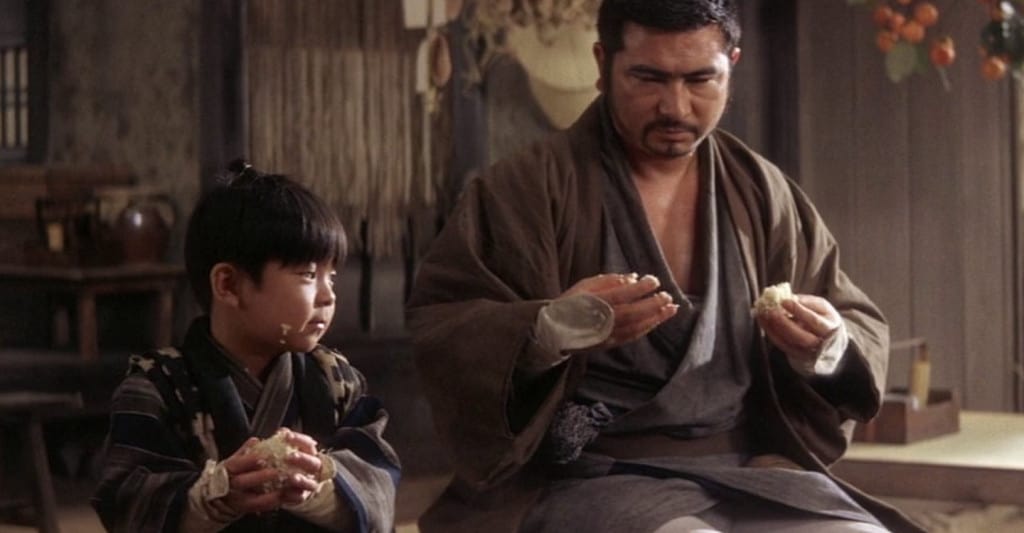By Charlotte Remes
When it comes to the thriller genre, South Korean cinema does not disappoint. Some might even say it dominates. And Kwon Oh-seung's directorial debut, “Midnight” (2021), is no exception. Fleshed in spine-chilling tension, the film features Jin Ki-joo (Little Forest), Wi Ha-joon (Squid Game), and Gil Hae-yeon (In Her Place) cast in a heart-stopping game of cat-and-mouse. The film's 2020 premiere was delayed given the Covid-19 pandemic before being made available in theatres and on online streaming platforms on 30 June 2021. Nevertheless, in spite of its subdued release, ‘Midnight' proved a critical and commercial success, placing third at the Korean box office with a gross of $796,540 as of December 12, 2021. Additionally, it clinched the ‘Silver Audience Award for Best Asian Film' at the ‘25th Fantasia International Film Festival'.
The film begins by introducing us to Kyung-mi (Jin Ki-joo), a deaf and mute girl who works as a customer service officer providing sign language assistance for hearing impaired customers. Despite her daily struggles, she is shown to have an endearingly plucky character, navigating sleazy colleagues and ungrateful customers. Kyung-mi's seemingly dreary world quickly expands with the introduction of her mother (Gil Hae-yeon), who is also deaf and mute. The relationship of unwavering affection between mother and daughter reflects a bond beyond the genetic impairments they share. Together in a silent world, both women find irreplaceable solace and understanding with each other using sign language and alternative visual devices to communicate and express themselves.
This peace is quickly threatened when Kyung-mi accidentally stumbles upon the bloodied So-jung (Kim Hye-yoon), turning the attention of her psychopathic attacker, Do-shik, onto Kyung-mi herself. As a result, her discovery sets up the film's relentless game of cat and mouse. As Kyung-mi fights to evade her seemingly inevitable fate, the story is also joined by Jong-tak, So-jung's over-protective older brother who desperately attempts to save his sister. Over the course of the night, the threads of each character rapidly intertwine through the maze-like streets of South Korea, tightening as the gap between eye-witness and killer closes to reach the ultimate/final confrontation. At first glance, “Midnight”'s thriller plot line might seem like just another overly simplistic rendition of the cat-and-mouse thriller genre stripped all the way down to its bare bones, leaving little doubt as to how its general arc will pan out. However, don't be fooled: it is precisely this simplicity that will draw your attention to the breathless experience of the hunt.
But at its heart, “Midnight” presents more than a night of terror. Kwon Oh-seung steps away from the generic tropes of previous film narratives that flip the tables of perception regarding the disabled such as “Hush” (2016) or “Don't Breathe” (2019) which typically reveal their ‘superhuman' abilities borne as a result of their disabilities. Instead, Kwon relies on an alternative tactic guaranteed to leave viewers on the edge of their seats, shifting the weight of Kyung-mi's survival to rest on public perceptions of the disabled, and pure strokes of luck. In other words, the unreliable.
Though Kyung-mi successfully rings a security alarm for help, the voice speaker still prevents her and her mother from communicating with the officers. The device is built to render aid to those in need of it, and yet, its design lacks to account for the range of people that might utilise it, highlighting the reductive perception that fails to account for the range of society's members. In so doing, Kwon uses his film to reflect the lack of inclusivity towards minority communities, shining a light on the ways in which disabled individuals become immobilised by the inertia of social perception.
And again, later in the police station, within a space of supposed safety, Kyung-mi and her mother are rendered helpless. The attending officers consistently override what the women attempt to communicate to them, either to the hearing Do-shik or with their assumptions of who the attacker-killer might be. Their consistent deference to the narrative of the hearing reflects the ironic nature of power: innocence is conditional, resting in the hands of easily manipulated public perception.
When watching the film, audiences will be hard pressed to believe that Jin Ki-joo is a hearing actor. During a press conference, she commended her character's deafness as it brought out her other strengths, intelligence and wit. “As in the film, Kyung-mi is able to tell what's happening around her and sense the murderer's presence through light movements and other visual signals”, she remarked, adding, “I also tried to imagine how the world would have been to me if I couldn't hear anything. That's why for days I did many things with earbuds on and eventually got used to it.”
For his part, Wi Ha-joon steps across the line of morality to emerge as the ruthless serial killer, Do-shik, a sharp turn from his “Squid Game” character Jun-ho, a protective and righteous police detective. His acting range is incredible as he neatly slips between masks of trembling innocence and unhinged psychopathy to get to his victims.

It is indisputable that Jin Ki-joo and Wi Ha-joon's performances are stellar. But to say they are solely responsible for the pulsing undercurrent of tension in “Midnight” would be to neglect the input of sound effects. Notably, background music is absent throughout the movie. This leaves the sound to focalise on the sensory experiences of the characters, pulling viewers further into the world of the film. Alongside the sweeping cuts of the camera, Kyung-mi's breathless gasps are accompanied by the desperate pounding of her feet on the pavement. Brought together, the collision of rapid visual and auditory cuts mimics the unending chase between Kyung-mi and Do-shik that sweeps the audience along, skimming the point of exhaustion.
Additionally, it is worth observing the spaces the film inhabits. Whether on the dimly lit streets, or the police station, or in the brightly lit town centre, Do-shik pursues Kyung-mi through public spaces to great success. His bold and unflinching nature illuminates the film's darker message, that Kyung-mi's vulnerabilities are not simply a result of her impairments, but of the social and gender prejudices inflicted on her.
Simply put, “Midnight” is a film worth watching. If any of the content in the above review has appeared even mildly intriguing, quell your doubts for a moment and take a chance on the movie. Kwon displays an excellent knack for pushing the structures of the thriller genre as he breathes new life into what it means to cling to the edge of your seat. Gone are the days of cheap jump scares, gore, and hysterical screaming. “Midnight” muzzles them all, to remind us that no matter how petrifying or loud the screaming can get, silence is always louder.

















